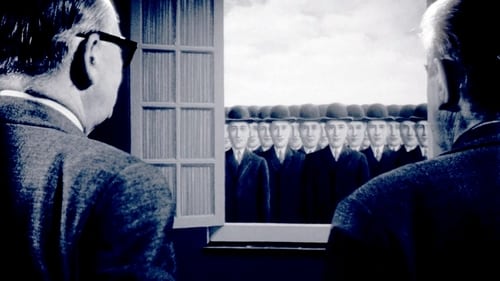
Editor
Film edited and directed by Luc de Heusch using images never used that Henri Storck turned in Ostend in 1930 while he was "cinégraphiste" of the city.

Director
Film edited and directed by Luc de Heusch using images never used that Henri Storck turned in Ostend in 1930 while he was "cinégraphiste" of the city.

Director
A history of racialism in Rwanda, from the European colonization to the 1994 genocide.

Director
From the young Ensor, brilliant artist, rebel and relatively unknown, to the esteemed Baron Ensor, who only painted scenes in which he plagiarized himself, Luc de Heusch provides an interpretation of a man and an oeuvre. A Sunday musician, out-and-out misogynist, talented utterer of curses, lover of the mermaid, seller of beach souvenirs, he left dazzling drawings and major 20th century paintings. At the centre of the film is the creative impotence he experienced halfway through his life. The setting is Ostend, queen of beaches, the city that he never wanted to leave, and the North Sea, beautifully photographed. A film on art which provides outstanding answers to the following questions: how to film a scene, how to find a dramatic structure, how to avoid narratives being too educational. The scenes are shot in full screen: the film imposes its format of continuity and narration on the museological ‘framework’.

Director

Self
Documentary exploring why Belgian television doesn't invest more money in Belgian cinema as is the case in e.g. the netherlands.

Director
The Belgian poet Christian Dotremont, organiser of the COBRA movement, invents a graphic writing system

Director
The work and fantasies of one of the COBRA group's principal painters, with the participation of Alechinsky

Director

Dialogue
A bitter-sweet story of a young sales assistant and a truck driver trapped between their dreams and the economic depression.

Director
A bitter-sweet story of a young sales assistant and a truck driver trapped between their dreams and the economic depression.

Director
Ethno-fiction: a sociological portrait of a small Belgian village, Moulbaix, through the passion for amateur theater.

Writer
The surrealist painter René Magritte questions the objective reality and emphasizes the arbitrariness of the relationship between an object, its image and its name: the evocation of mystery consists of images of familiar things gathered or transformed in such a way that they no longer conform to our ideas, whether naive or wise.

Director
The surrealist painter René Magritte questions the objective reality and emphasizes the arbitrariness of the relationship between an object, its image and its name: the evocation of mystery consists of images of familiar things gathered or transformed in such a way that they no longer conform to our ideas, whether naive or wise.

Screenplay
This ethnographic film sends us the image of the man who eats, a stark look at Belgium. We spend about one-eighth of our days eating. Luc de Heusch films these repetitive gestures that seem trivial, yet reveal so much of a particular culture and a civilization. From morning to night, from the market installation to dinner, from the daily and fast meal to the feast, the ethnologist is interested in all social classes. Originally, an attempt of cinematographic ethnography, neutral and distant, intended to define the Belgians by the way they eat. In fact, Luc de Heusch films his contemporaries as if they were Papuans.

Director
This ethnographic film sends us the image of the man who eats, a stark look at Belgium. We spend about one-eighth of our days eating. Luc de Heusch films these repetitive gestures that seem trivial, yet reveal so much of a particular culture and a civilization. From morning to night, from the market installation to dinner, from the daily and fast meal to the feast, the ethnologist is interested in all social classes. Originally, an attempt of cinematographic ethnography, neutral and distant, intended to define the Belgians by the way they eat. In fact, Luc de Heusch films his contemporaries as if they were Papuans.

Director
A short film portrait of Belgian artist Michel De Ghelderode

Director












